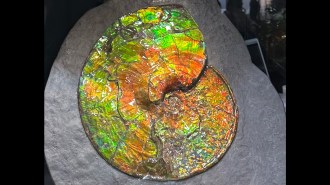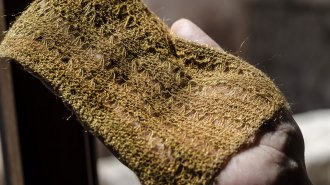Seeing the light
- More than 2 years ago
Researchers have developed a “smart petri dish” that signals cell death with intense light. The system could find use in screening drugs for toxic effects.
Rather than growing cells in a plastic dish, Michael J. Sailor of the University of California, San Diego and his colleagues use a photonic crystal, which is a silicon chip that controls the propagation of light. The chip they designed prevents red light from passing through, so when exposed to a light source, the chips reflect red light back.
The researchers grew liver cells on the dime-size chips. The cells act “like little lighthouses,” says Sailor, scattering the light from the chip in many directions, such that the cells glow a dim red.
The team exposed the chip-mounted cells to one of two toxins, cadmium chloride or acetaminophen. As the cells began to shrivel and die, they turned “intensely red,” says Sailor. The poisoned cells’ ragged shapes appear to scatter light more efficiently than the uniform shapes of healthy cells do, he says.
The chip detects cellular distress 2 hours before a conventional cellular dye does, Sailor and his team report in the Aug. 1 Langmuir. The system monitors cells continuously without disturbing them, Sailor says.







